Wengji Ancient Village in Lancang County, Puer
Chinese Name: 澜沧拉祜族自治县惠民镇翁基村/翁基古寨
English Name: Wengji Village in Lancang County, Puer
Wengji Village is an ancient Blang ethnic village located in Huimin Town, Lancang Lahu Autonomous County, Pu’er City, Yunnan Province. Known for its rich Blang culture and well-preserved traditional architecture, Wengji is often hailed as a “Thousand-Year-Old Blang Village.” The village features historical sites including ancient dwellings, Buddhist temples, village gates, and ancient cypress trees. It focuses on developing Blang cultural tourism, offering a glimpse into the village’s unique heritage and natural beauty.
Historical and Cultural Background
- Historical Significance: The Blang people are one of the earliest tea cultivators in Yunnan. Historical records from the 5th century BC describe the Blang as significant tea growers, with tea plantations becoming a major production area in Yunnan. The Blang’s expertise in tea cultivation is well-recognized.
- Cultural Influences: Wengji is surrounded by Dai and Hani ethnic groups, contributing to a diverse cultural landscape. The local customs include traditional singing and dancing, with Blang people known for their musical and dance skills. Traditional instruments include the “cow leg lute,” and festivities are lively with musical performances.
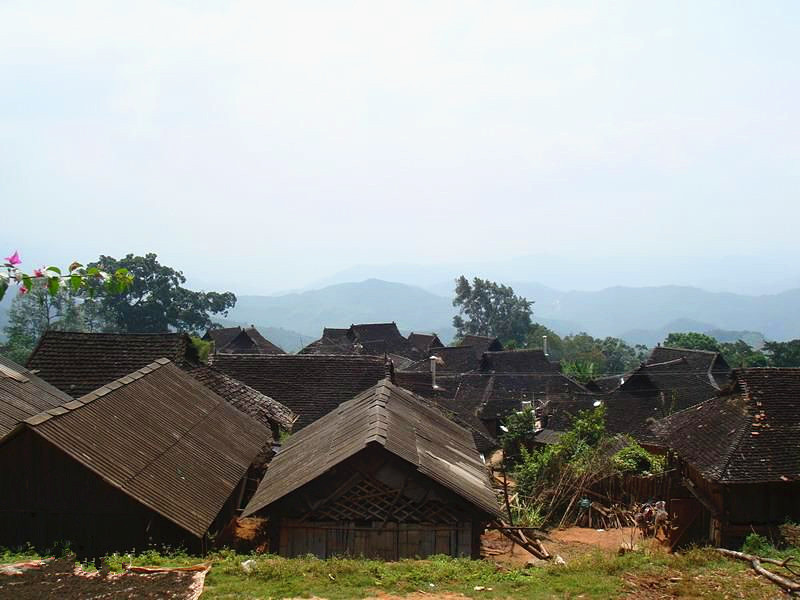
Village Features
- Location: Wengji is situated 74 kilometers from the county seat, 28 kilometers from the National Road 214, and 1 kilometer from the village committee. It is a mountainous area with a river running through, supporting high crop yields. The village consists of 85 households with 318 residents, all of whom are Blang.
- Architecture: The village is characterized by traditional Blang-style stilt houses, known for their distinctive elevated design. Historically, the lower levels were used for livestock, but now they serve as kitchens, tea rooms, or shops. Wengji’s architecture includes 49 traditional stilt houses listed as cultural heritage.
Cultural Practices
- Tea Culture: Tea is central to Blang culture. Legend has it that around the 10th century BC, wild tea trees saved the Blang people from a plague, leading to tea being revered as a life-saving plant. Rituals and ceremonies are performed during tea planting, and tea remains a crucial part of Blang life.
- Traditional Beliefs: The village has a sacred ancient cypress tree, believed to be over 2,500 years old. According to local legend, a dragon spirit transformed into the tree after being pacified by a Buddhist monk.
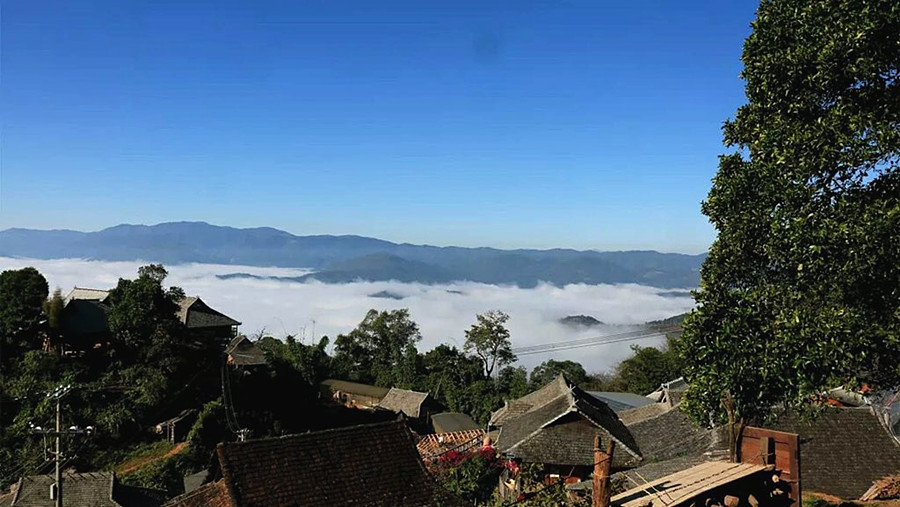
Tourism and Development
- Tourist Attractions: Wengji is part of the “Green Triangle Tourism Route” in Pu’er, with nearby Jingmai and Mangjing scenic areas being popular destinations. The village gained additional fame through the filming of the TV drama “Tea Tribute” by CCTV.
- Tea Production: The village is located in the “Thousand-Mu Ancient Tea Garden,” known for its ancient tea trees and high-quality Pu’er tea. The tea has a distinct flavor profile with floral notes and a long-lasting sweet aftertaste.
Wengji Village remains a testament to the rich cultural and historical heritage of the Blang people, combining ancient traditions with natural beauty to offer a unique cultural experience.
A Thousand Years of Tea Farming and Pu’er Tea in Wengji Village
Wengji Village is located on Jingmai Mountain, renowned for its tea production, especially its ancient tea trees. The village, inhabited by the Blang ethnic group, has a deep-rooted tea culture. The Blang are known for their tea cultivation, affection for tea, and reliance on tea for their livelihood. Thus, Wengji Village, the Blang people, Jingmai Mountain, and ancient tea trees are closely interlinked.
Geographical and Climatic Conditions
- Location and Climate: Wengji Village is situated at an altitude of approximately 1,700 meters. The region experiences an average annual temperature of 19.4°C and an annual precipitation of 1,800 mm. These climatic conditions are ideal for tea cultivation, contributing to the high quality of the tea.
- Economic Activities: The village’s primary economic activity is tea cultivation. The entire 2,400 acres of economic forest land in the village are dedicated to growing tea trees. Surrounding villages, including Jingmai Dazhai and Mangjing, collectively form the 28,000-acre Jingmai Mountain Ancient Tea Garden. The tea produced in Wengji Village is marketed as Jingmai Mountain Pu’er tea.
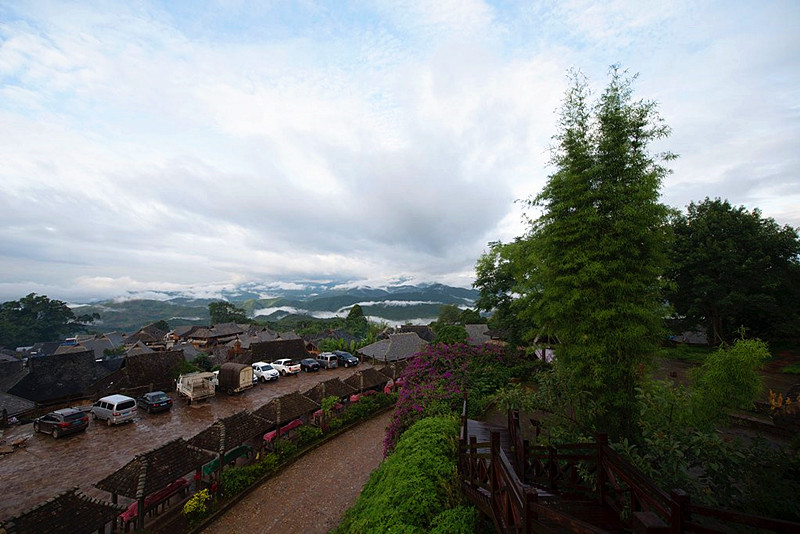
Historical and Cultural Significance
- Blang Tea Cultivation: The Blang people are among the earliest tea cultivators in Yunnan, earning them the title of “Thousand-Year Tea Farmers.” Historically, their settlements were surrounded by tea fields, which have become major tea production areas in Yunnan.
- Modern Tea Practices: In Wengji Village, nearly every household has its own tea garden, and some have established tea cooperatives. Many villagers run tea-related businesses, with some operating tea shops upstairs and restaurants downstairs, contributing to a thriving local economy.
Tea Production and Trade
- Historical Trade Routes: Historically, tea from Jingmai Mountain was packed in bamboo baskets and transported via the Tea Horse Road, reaching markets far and wide. Some tea reached Pu’er as a raw material, while other green tea was transported through the border regions of Laos and Myanmar to Southeast Asia.
- Jingmai Mountain Ancient Tea Garden: The tea garden features ancient arbor tea trees, renowned for their high quality and revered by tea enthusiasts. The tea is known for its rich, tender leaves with abundant white hairs and a strong, fragrant aroma.
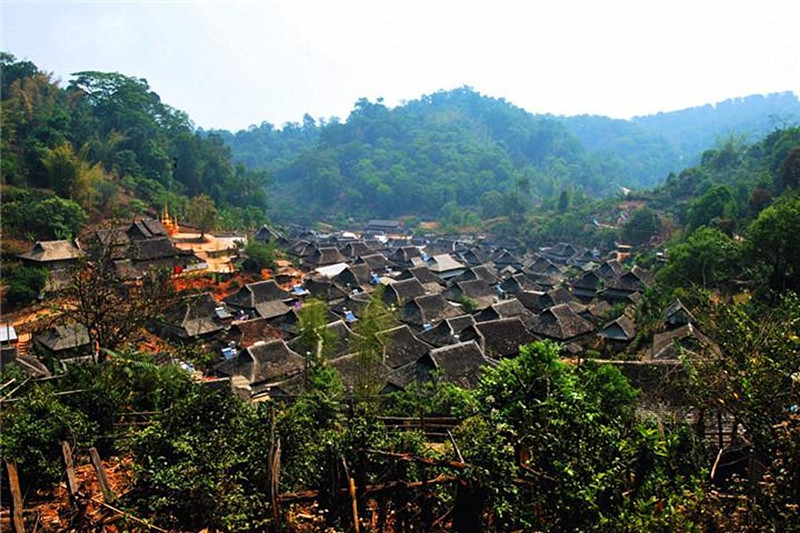
Characteristics of Pu’er Tea
- Special Characteristics: Pu’er tea made from the tender leaves of ancient tea trees boasts a high aroma, intense flavor, and full-bodied taste. It has beneficial properties such as lowering cholesterol, improving digestion, reducing blood pressure, and enhancing overall health. Regular consumption can aid in beauty, fitness, weight loss, nutrition improvement, metabolism, immunity, and anti-aging.
Jingmai Mountain Ancient Tree Tea
- Tea Quality: Jingmai Mountain ancient tree tea is celebrated for its dry tea aroma, persistent flavor in the tea soup, and lingering fragrance at the bottom of the cup. It is a highly sought-after tea that is cherished by tea lovers for its unique qualities.
In summary, Wengji Village is a significant location in the world of tea, embodying a blend of ancient tradition and exceptional tea quality. The village’s connection to the Blang people and Jingmai Mountain’s rich tea heritage underscores its status as a treasured destination for tea enthusiasts.
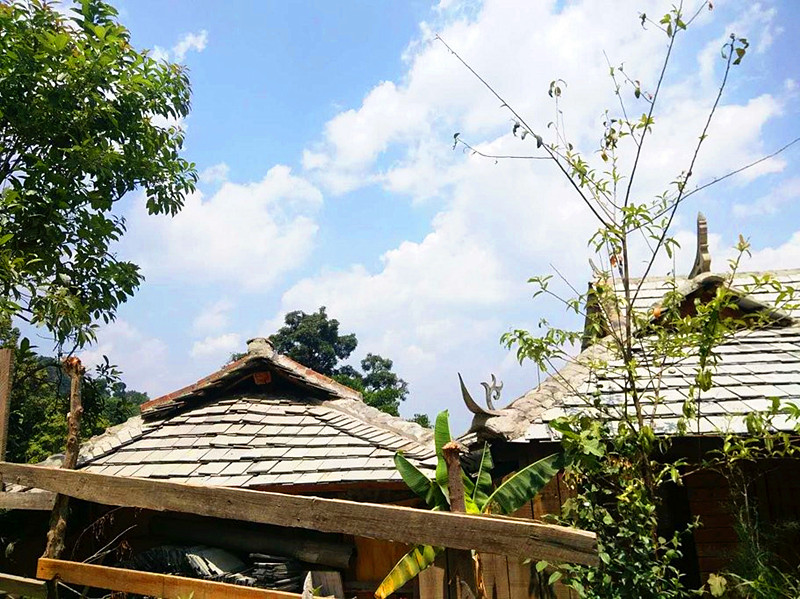

 7 Days GolfingTour
7 Days GolfingTour
 8 Days Group Tour
8 Days Group Tour
 8 Days Yunnan Tour
8 Days Yunnan Tour
 7 Days Shangri La Hiking
7 Days Shangri La Hiking
 11 Days Yunnan Tour
11 Days Yunnan Tour
 6 Days Yuanyang Terraces
6 Days Yuanyang Terraces
 11 Days Yunnan Tour
11 Days Yunnan Tour
 8 Days South Yunnan
8 Days South Yunnan
 7 Days Tea Tour
7 Days Tea Tour
 8 Days Muslim Tour
8 Days Muslim Tour
 12 Days Self-Driving
12 Days Self-Driving
 4 Days Haba Climbing
4 Days Haba Climbing
 Tiger Leaping Gorge
Tiger Leaping Gorge
 Stone Forest
Stone Forest
 Yunnan-Tibet
Yunnan-Tibet
 Hani Rice Terraces
Hani Rice Terraces
 Kunming
Kunming
 Lijiang
Lijiang
 Shangri-la
Shangri-la
 Dali
Dali
 XishuangBanna
XishuangBanna
 Honghe
Honghe
 Kunming
Kunming
 Lijiang
Lijiang
 Shangri-la
Shangri-la
 Yuanyang Rice Terraces
Yuanyang Rice Terraces
 Nujiang
Nujiang
 XishuangBanna
XishuangBanna
 Spring City Golf
Spring City Golf
 Snow Mountain Golf
Snow Mountain Golf
 Stone Mountain Golf
Stone Mountain Golf















